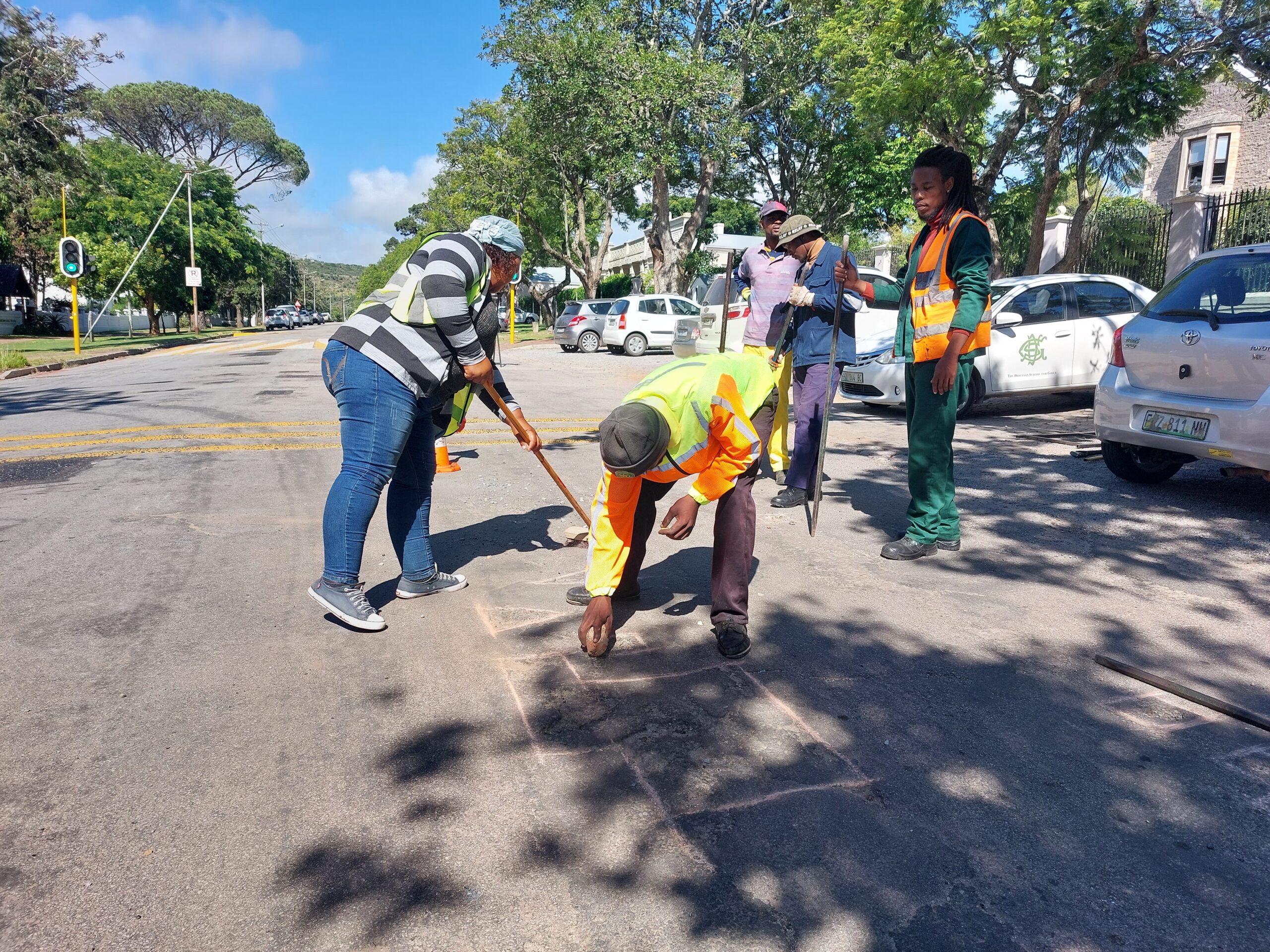By ROD AMNER
Do you have a spare used broom or a spade? Or a pick-axe – or even just a pick handle? Or plastic bags or a chair that could be mended?
If you no longer need these things, you might consider donating them to the 1650 Social Employment Fund (SEF) workers, who are desperate for the tool and materials required to help ‘fix’ the city, said the project manager of the National Arts Festival’s SEF project, Hilton Haakonsen.
“Many people have a spade or a shovel or a broom that isn’t quite good enough for their purposes. Trust me; it’ll be good enough for us because we are sweeping roads which are chewing through brooms.
“If you have a spare but slightly broken chair. Bring it along – the SEF carpenters can fix it, and we can send it to a school. We have repair teams. So we can work with broken things,” Haakonsen said.
The SEF workers managed by the National Arts Festival have been active again since early January 2023. They are clearing stormwater drains, fixing potholes, clearing dumpsites (filling 10 000 plastic bags with waste every week), fixing schools, planting gardens, collecting recyclables and composting alien vegetation. They are incrementally and systematically lifting the city out of its predicament.
A lot of the brush cleared of the invasive species goes to the Old Power Station and is turned into compost. That compost returns to the Umthathi Training Project’s three hectares of food gardens – which look amazing, by the way.
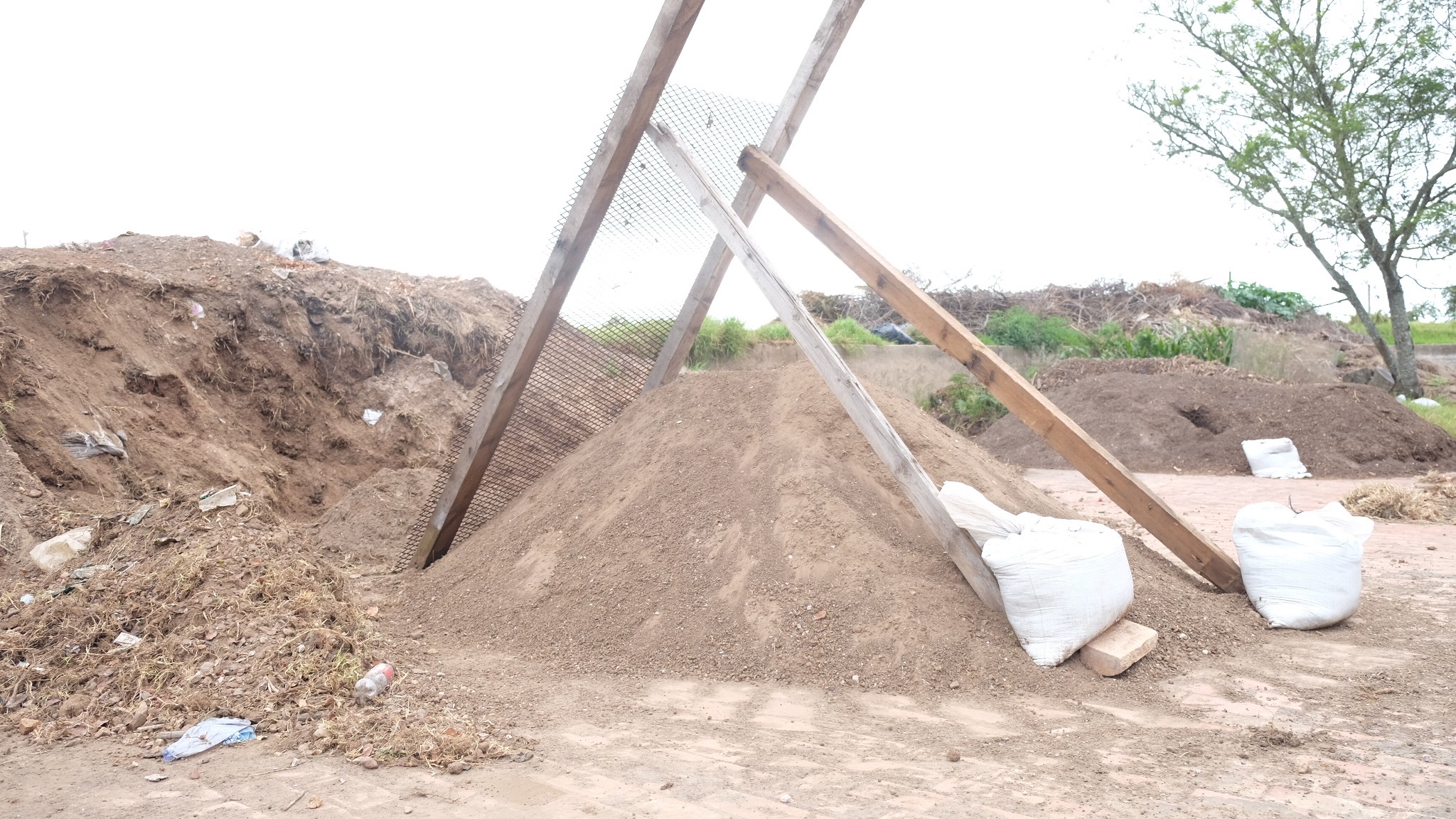
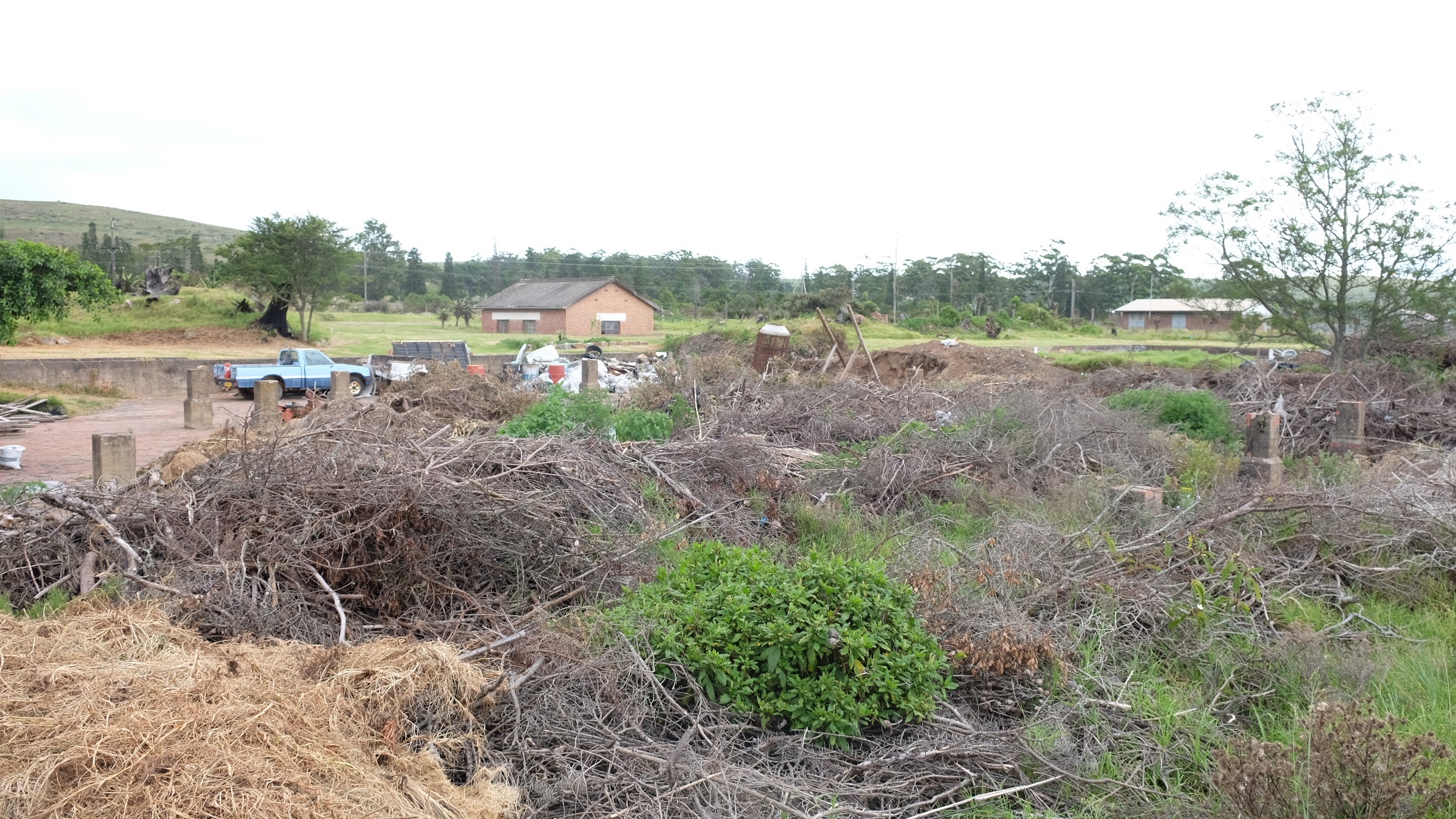
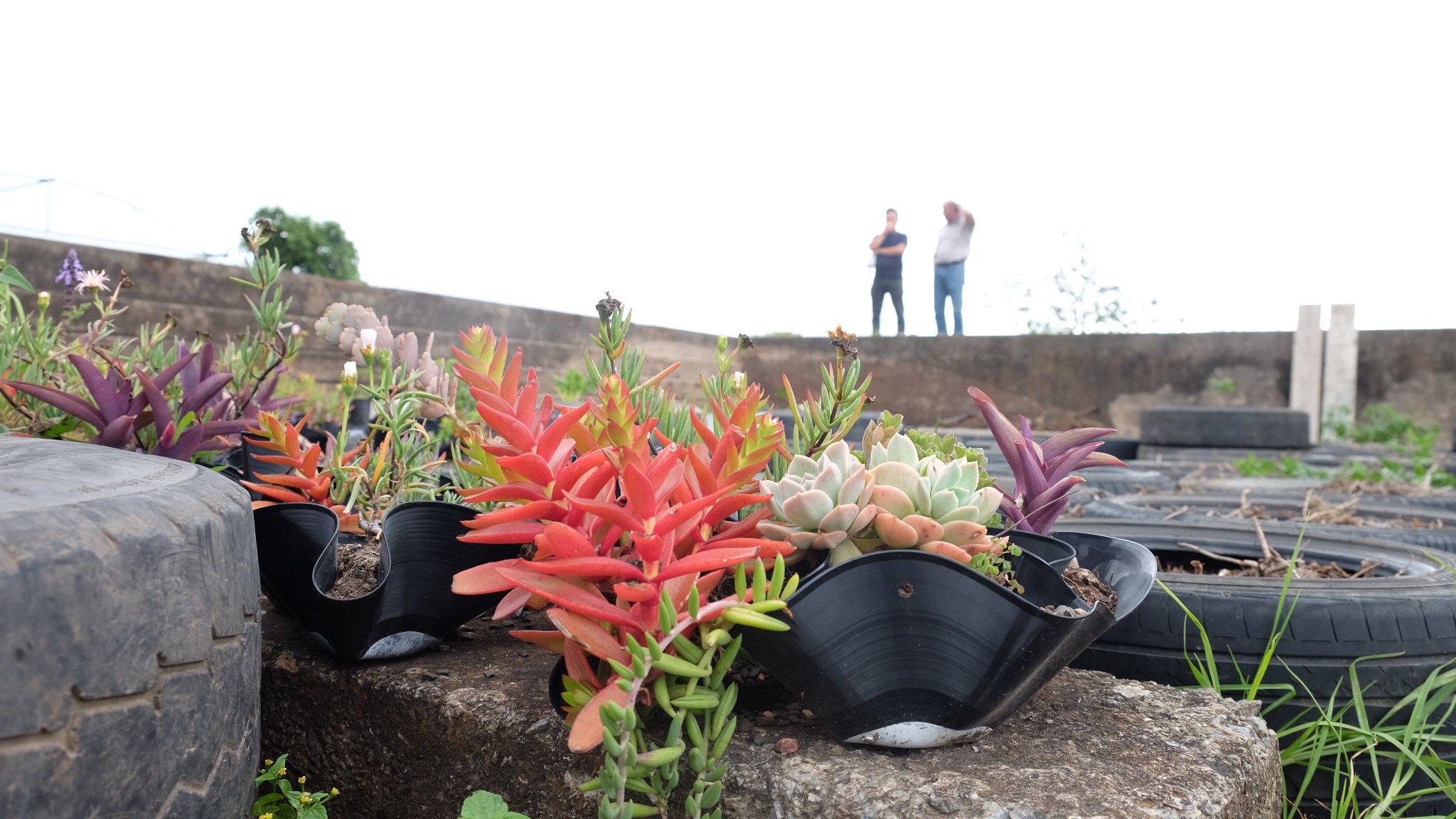
The 26 SEF projects have just one bakkie, a trailer, and an eight-ton truck to clear the city.
A limited budget for materials
The project has limited resources because 80 per cent of the budget from the Industrial Development Corporation is committed to wages. This leaves very little over for the tools and materials necessary to do the multifarious tasks undertaken by this vast army of workers.
“We have the labour, but just 20 per cent of the budget is allocated to tools, materials, transport, and administration – everything else,” Haarkonsen said.
The project is hoped to be extended until the end of June 2023, including a new budget for tools and materials (but still only 20 per cent of the overall amount).
See the list of SEF Priority Gift Registry below for some guidance.
Tools and materials drop off at Queen Street
You can drop off your donation at the SEF warehouse at 3 Queen Street (opposite the taxi rank).
Or if you are unable to drive there, WhatsApp the SEF phone on 0761161664. Or email Sefadmin@naf.co.za or Sefproject@naf.co.za, and they will arrange to pick up your donation.
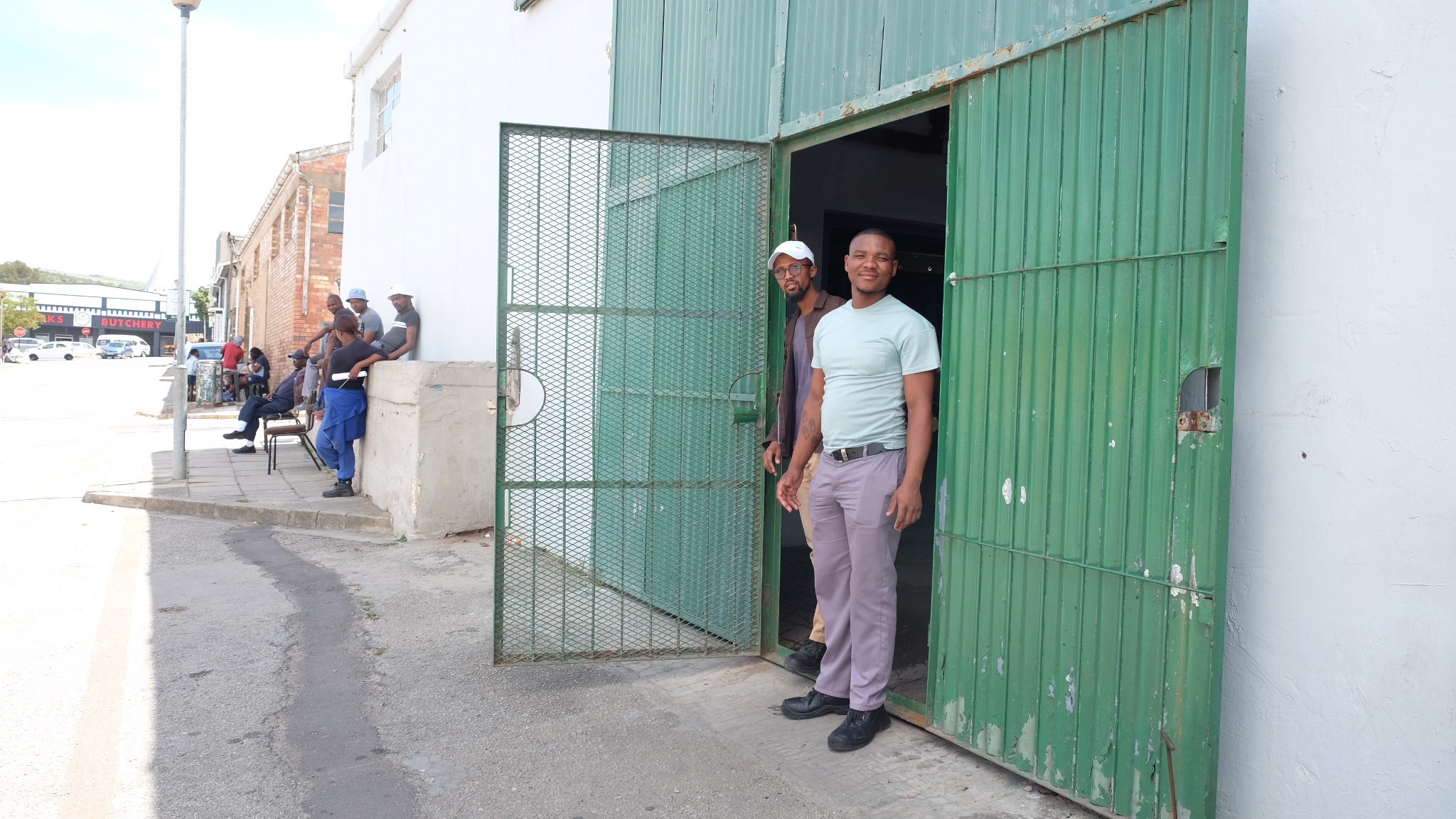
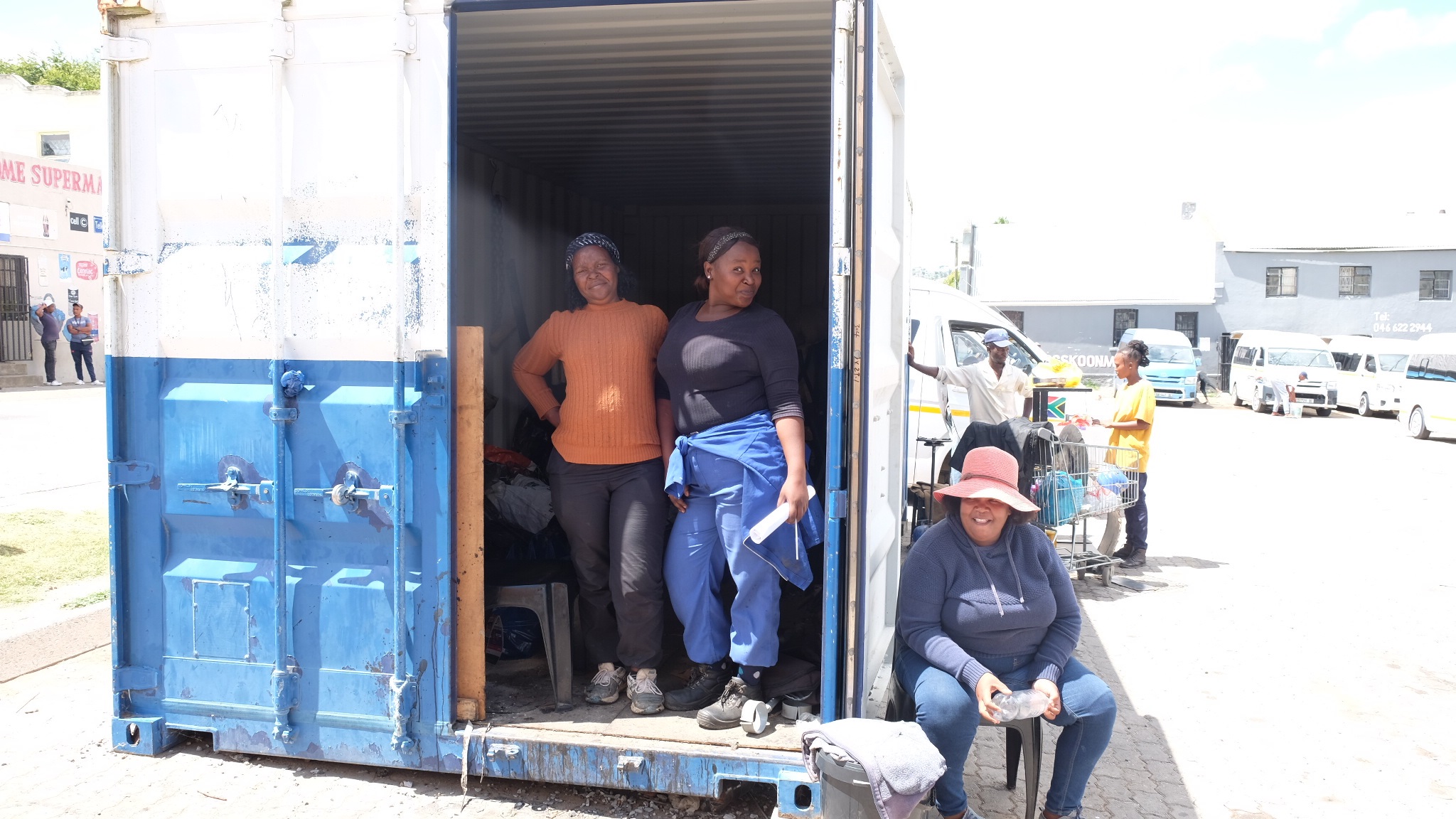
Deposit accounts at Buco and Build it
Alternatively, if you don’t want to drop off your own equipment, the SEF has opened deposit accounts at Buco and Build it.
Just tell the store manager you would like to deposit into the store’s account for specific pieces of equipment (e.g. two spades), and the store will record it. Let the SEF know what you have donated, and they will do the pick-up.
The SEF does not accept cash donations.
The Ghost Town clean up
SEF teams have been in the Ghost Town area for almost five months. “It’s looking good. We’ve done a huge amount, but we have to move on. We can’t leave a team there indefinitely,” Haakonsen said.
“We’ve told the community, ‘We’ve done it now, please; you need to play your part’.
And the municipality also needs to play their part in collecting their refuse. The number of times Makana vehicles drive past and say to us, ‘Oh, while you are about it, just pick up all this stuff there’.
Encouragement and criticism of the SEF
A Makana councillor recently saw some SEF personnel working, and was really thankful. “So he bought them some cool drinks to say thank you. It’s tiny, but it means a lot to the participants. Generally, people are being quite kind and waving and saying thank you,” Haarkonsen said.
But there has been criticism, too.
“We got a really horrible message from somebody who said, ‘You, you’re playing into a particular political agenda that’s supporting people not doing anything’,” Haarkonsen said.
Haarkonsen disputed this and said the SEF enhanced what was already happening. He said the SEF was not trying to duplicate or replace the efforts of the municipality or civic organisations.
Others ridicule what they perceive to be large groups of workers standing around watching each other work.
In response, NAF CEO Monica Newton said it was essential to understand the balances needed in a public employment project.
“For example, there’s a methodology to the roads: we first have to clean the road surface, making it possible to fix the pothole. And then, we clear the drains so water does not destroy the work. The water doesn’t go away. It sits, and everything that you’ve done falls apart. Before we do any pothole work, we always go in and open and clean the drains. And eventually, in the end, we fill the pothole,” she said.
“It might look as though some people aren’t doing anything, possibly because they are being trained, or waiting for plumbing rods to clear a stormwater drain or a kind of chainsaw to come and clear a particularly stubborn piece of brush, or are cleaning and sweeping so that the potholes can be filled,” she said.
On a couple of days when it’s scorching, SEF workers will be asked to sit under the trees because it’s unsafe for them to work.
Newton said construction workers would do the same thing. Schools would do the same thing. “So it’s a normal part of hard physical labour that I think is sometimes misunderstood.”
Donkeys!
Another problem is that bags are not always collected timeously, and donkeys (and humans) strew their contents into the street.
“If the donkeys evolve to have opposable thumbs, we are toast,” jokes Newton. “They are smarter than us, hungrier than us, more determined than us. And they work 24 hours a day.
“We have a dedicated team working five to six days a week on a schedule as far as possible, stopping at all projects to clear what they can.
“We know that that was a point of pain for residents. It’s not great when you take all the time and effort to clean it up, and then the bags lie around and get broken – and then they’re a hazard,” she added.
Challenges facing workers
Haarkonsen said the SEF paid minimum wage to people entitled to work only ten days a month. “The poverty line is still there. People are still arriving, having not had breakfast, no water in the taps – they can’t bring water with them.
“The money that they’re getting is to feed families. And you’ll be finding women who are collapsing on site. We are looking at trying to provide even a small breakfast or something with the feeding schemes to try and provide something for our workers.
“Poverty isn’t changed by it by a day’s work or minutes of work, and people are not paid by the week. They’re paid by the month.”
Collaboration with Makana Municipality
Haarkonsen said he received a phone call early this week from Makana Municipality. “They asked if we could work together to get things done. I am pleased about that.
“The idea is to develop budgets for tar and other materials and to work out which areas need to be prioritised for the opening of drains.
“In addition, we have often asked Makana for assistance if we find water leaking – we take photos and send them to them. They have been pretty good in responding,” Haarkonsen said.
“We also need to work together with Makana Municipality on the refuse,” he added.
Road maintenance and pothole filling
You may have seen a team busy clearing drains and fixing potholes on Worcester Street. The Diocesan School for Girls has supplied materials – the SEF provided the labour.
The next stop is St. Andrew’s – the SEFs will do the other side of Worcester Street in front of the Highlander and then move into Milner Road. The next phase will be around Graeme College in collaboration with Makana Revive.
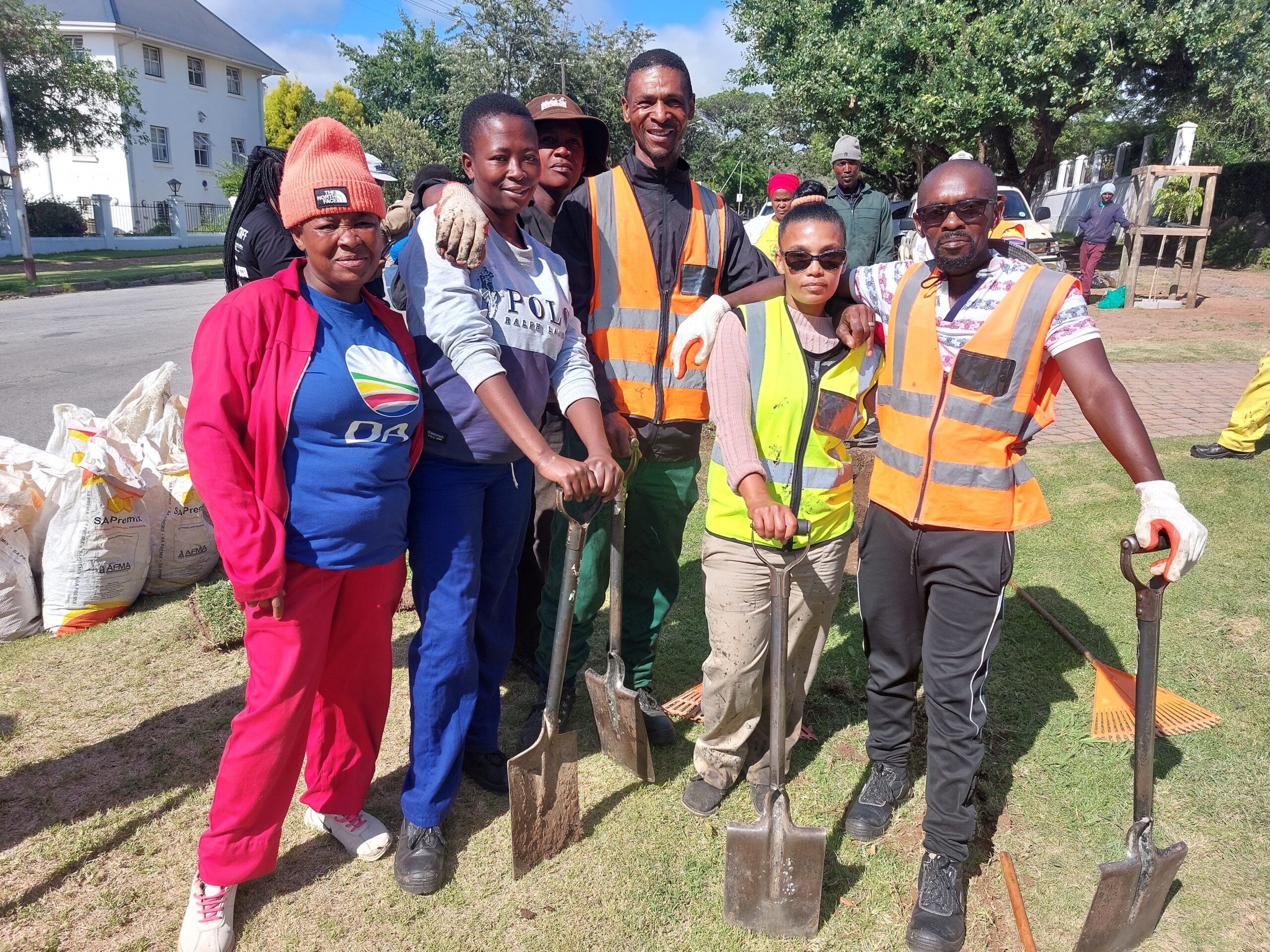
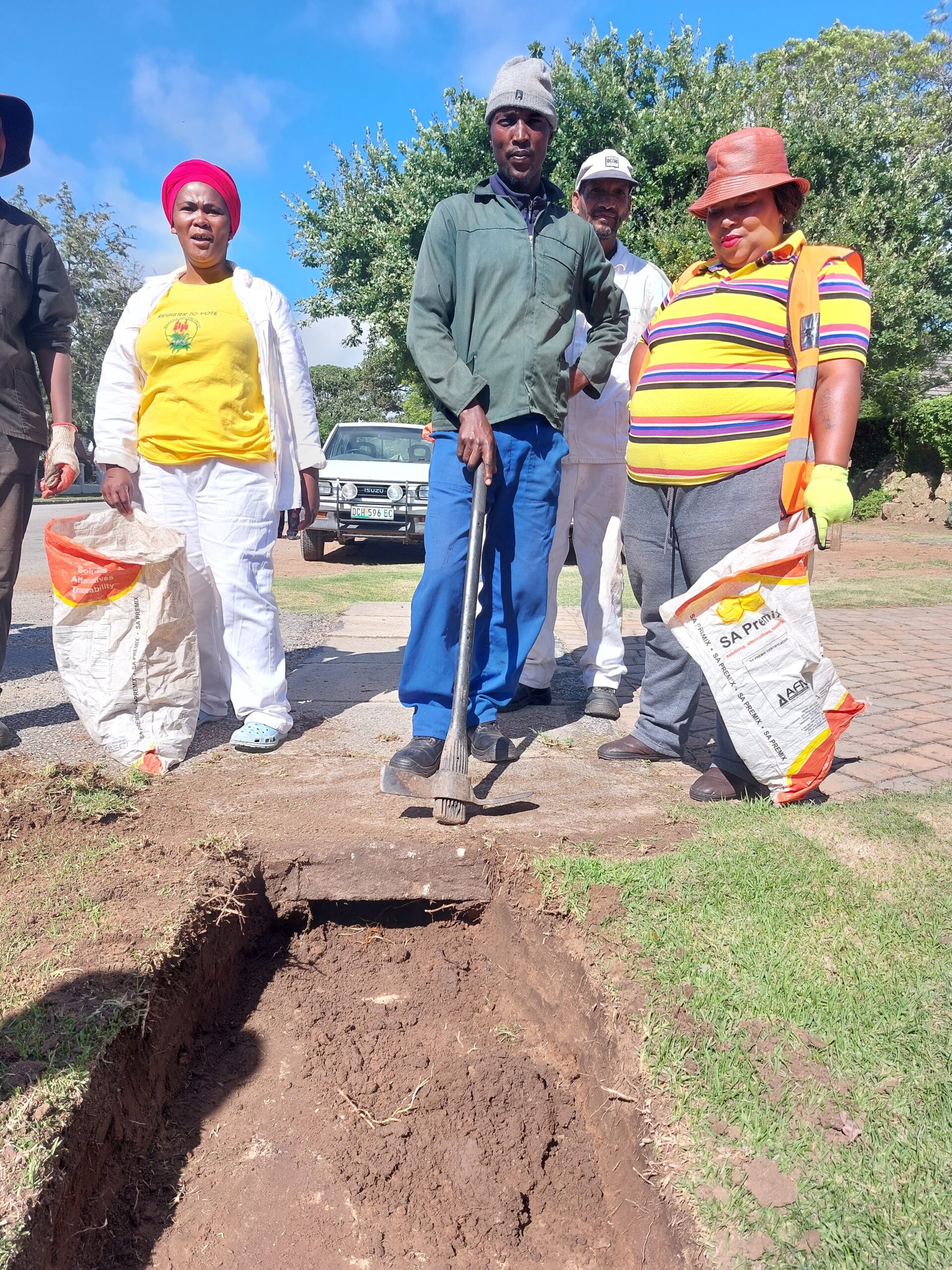

The 292 Ward 4 Service Delivery WhatsApp Group participants were asked to donate R514.
R514 X 292 WhatsApp group members = R150 000. This is what is required to fix the roads around Graeme. And over 20 people have donated so far to cover the whole section.
One group member commented: “I am willing to give the R514 in the interest of the health of my tyres and my mental health. And the future value of my property. It will only have meaning, though, if we can all contribute. Please, let’s do this. The municipality will only ever do a sand and grit job.”
The project will focus on the Graeme College hostel entrance on Templeton drive and then around through to the cricket nets. “That area is shocking,” said Haarkonsen.
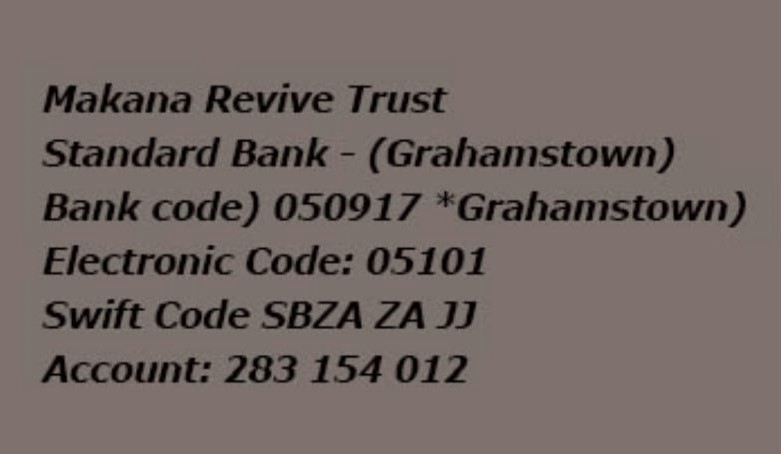

Application to extend the project until the end of 2024
The presidential project has been gazetted until the end of 2024. The Makhanda SEF projects have all been told to re-apply for extensions until the end of next year.
“It’d be great if we get it because it’s made a difference to the town and people’s lives. We have yet to be told whether it has been accepted,” Haakonsen said.
Problems with recycling
“We’ve got a huge problem with recycling. A R35 000 motor on a machine that pelleted plastic waste was stolen from a local company. We can’t pellet now, so all this stuff is just sitting, sitting, sitting,” Haakonsen said.
“We’ve got around 2000 refuse bags full of plastic bottles we could have recycled and used that are now just sitting in the yard. Recycling in Makhanda is falling apart. So there are tons and tons of glass just by the dump now.
“We need to start a proper recycling plant here. We are talking to the Industrial Development Corporation, funding the SEF, to support a R10 million recycling plant in Joza. At present, everything must be compacted and sent to Joburg or Gqeberha – transport is a considerable cost.
Roads paved in plastic
Haarkonsen said Makhanda could make road paving blocks out of recycled plastic.
SA’s first plastic road was completed in Jeffreys Bay three years ago, pointing to exciting possibilities for job creation, waste and pollution reduction and cost-saving.
The roads are durable, and when you have a localised problem, you lift a few blocks, fix it, and put them back again.
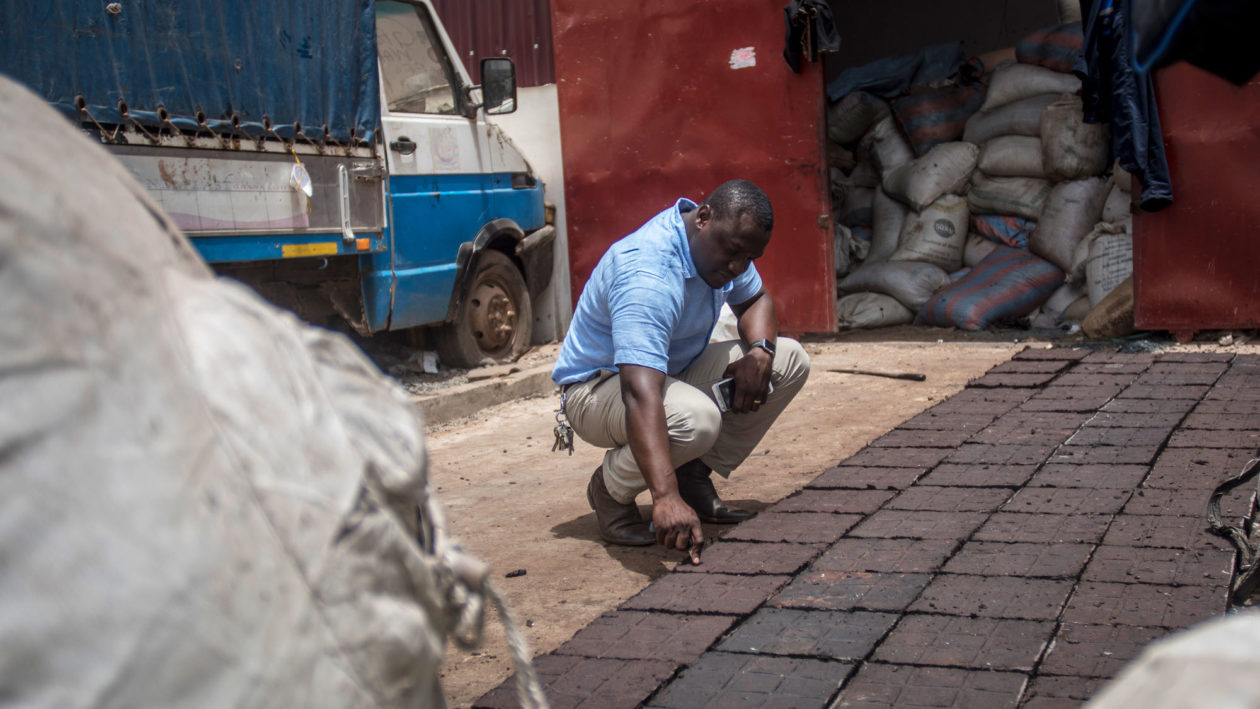
The administrative burden
Across the 26 SEF projects, it takes ten days to get the payments done.
“The project’s admin took us by surprise,” Newton said. “The project needs people on site, people at the office, and people continually monitoring the quality system and updating banking details. And there are thousands of people on the waiting lists.
“Just the scale of the bags alone can imagine both horrifying and amazing.”
The SEF gift registry
A donation of these items would help:
- Weed killer (Scat or otherwise)
- Cement
- Road paint
- LED bulbs and fluorescent tubing for schools
- Orange reflector vests
- Rakes
- Hard brooms
- Clear refuse bags
- Hazmat jumpsuits
- Cotton/upholstery fabric off-cuts
- Site water – daily delivery
- Refuse bins (bolt-down type)


